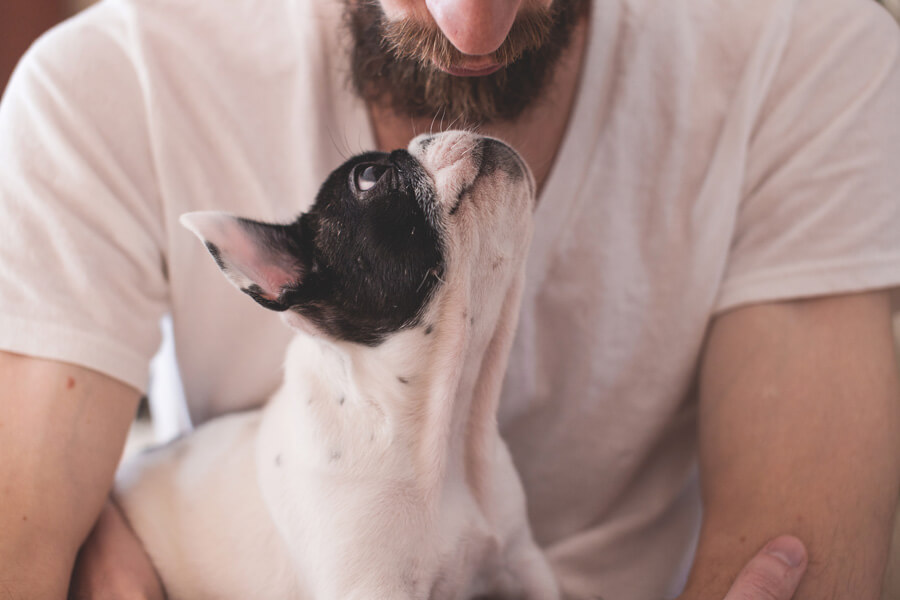Over the last decade there has been an increase in the number of rescue pets that are re-homed or adopted. In fact, in 2017-2018 more than 95,000 rescue animals were re-claimed or re-homed.
While ‘rescue culture’ is growing in popularity, pet professionals have an important role to play in helping pet owners manage their new rescue pet.
Certainly, giving rescue animals a new lease on life can be an incredibly rewarding experience for pet owners. However, the transition from a shelter to a new home can be both confusing and scary for pets.
As such, industry professionals can offer pet owners advice and tips on how to make the move more comfortable and less frightening for rescue pets. From setting a clear routine to giving lots of love, there are many things pet owners can do to ensure adopting a rescue pet is a wonderful experience for everyone.

Making the transition from shelter to home
As part of Wellness Month (which runs for the month of October), the TrustedHousesitters pet sitting community has teamed up with pet psychologist Dr Jacqui Ley to collate some tips and insights on how pet owners can ease their rescue pets’ worries as they adjust to their new forever home.
Of course, it’s important that pet owners are aware that it will take time for their rescue pet to settle in and feel totally comfortable in their new surroundings.
Dr Ley advises, “It can be harder for older pets, who have learnt the rules for one household and now have to learn rules for a new household. In my experience, it generally takes 2-3 months for new pets to really have a sense of belonging to their new home and new family.”
Her advice for pet owners is to take it slowly and give the animals lots of help to learn the new rules (for example, meal times, where they can rest, where to go to the toilet and how to get there and car travel).
“Treating new adult pets a bit like new puppies and kittens can help them settle in because we make sure we monitor puppies and kittens so they learn what we want them to learn.”
Pet professionals can remind pet owners that their rescue pet may take some time to accept their new home and environment. Encourage pet owners to take the time to find out what their new pet likes and to be prepared for misunderstandings.

Fear & separation anxiety in rescue pets
Moving to a new home is scary for some pets and so it’s not uncommon for rescue pets to experience fear and separation anxiety. Discussing this with pet owners can help them work out ways in which they can address the associated behaviour.
Dr Ley explains, “Separation anxiety (or separation distress, as it is becoming known) can be a challenging condition for new owners to manage. The animal may damage property, hurt itself, and bother the neighbours, which can create all kinds of stress for the owners.
“Some pets may respond to working with an appropriately qualified trainer to help them learn to be home alone. However, most rescue pets settle in as they learn about their new family. Some animals may still display distress when left home alone or when separated from people.”
Importantly, Dr Ley stresses that rescue pets should NEVER be punished. She says the behaviour is due to inappropriate anxiety and cannot be helped.
She says using a spray bottle, yelling, throwing shaker cans or chains or worst, putting an anti bark collar on the dog is not an appropriate way to address behaviour issues.
“Most pets with separation anxiety need to be diagnosed and treated by a veterinarian with extra training in Behavioural Medicine or a Veterinary Psychiatrist. Just like serious mental health problems in people need to be managed by a psychiatrist, many pets with separation distress need this level of care.
“Treatment should involve managing the pets’ environment, helping them learn to be calm and then to be left alone. Often medication is needed to help rescue pets be calm enough to start to learn and accept that they can be ok when left alone,” says Dr Ley.

8 Tips to assist rescue pets
Pet professionals can play an important role in supporting rescue shelters, highlighting the benefits of adoption and helping pet owners cope with their new rescue pet.
The following tips provided by Dr Ley can be shared with owners of rescue pets to help improve the outcome.
- It’s essential to appreciate that it will take some time for a rescue pet to feel truly comfortable and at ease in their new home.
- Encourage pet owners to check and recheck that their property is secure. Some pets are scared and may try and escape. If walking dogs, it’s recommended to do short walks that loop back to the home so they learn to approach it from many directions. This helps them learn where to head for if they do get lost.
- Set a clear routine to help the pet learn where and when food will be given, where to find water, resting spots and toileting areas. This can help them settle more readily.
- Be prepared that initially the animal is likely to feel confused and may not be ready to accept their new home or owner.
- Recognise that if the dog has been in kennels, they may have lost their house training and will need to be taught again. So, no matter how old the animal is, just keep taking them to the toilet area until you have learnt their signals for needing the toilet.
- Rescue pets can benefit from having a quiet place to go and rest. Make it a house rule that if the pet is in their “safe place” to leave them alone until they come out or it is time to do something fun.
- For many pets, staying in a familiar environment when their owner is away is preferred. This is especially true for cats, in particular rescue cats. Having a trusted friend or pet sitter stay at your home can provide stability for the pet.
- Recognise that growling is a dog and a cat’s way of saying, “I am uncomfortable with what you are doing, please stop and give me space”. Respect their request by moving away from them. It is not win or lose, rather it’s being polite and understanding.
Pet professionals can also make pet owners aware that some problems may not show up until the rescue pet has settled into the home.
If an owner is worried about their pet’s behaviour, encourage them to seek help early. Most problems and behaviour issues can be managed, but the earlier the better.
Latest posts by Liz Walden (see all)
- Pet health: Medicinal cannabis for pets - December 27, 2021
- What pet business insurance do I need? - November 17, 2021
- Pet sitters: how to take time off - November 15, 2021










Leave A Comment